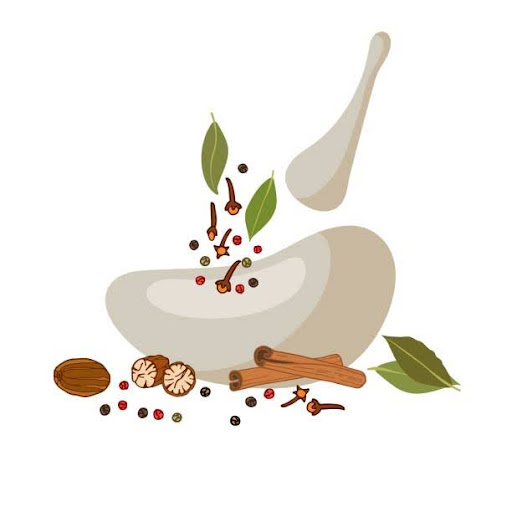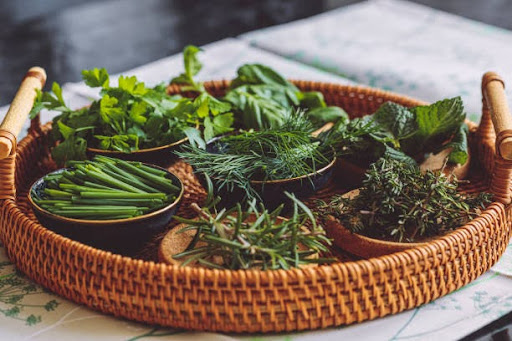Herbal Medicine Education: A Complete Guide to Natural Healing Knowledge
Taking herbal medicine classes allows people to discover natural ways of healing and using plant herbs. Because traditional medicine is so common now, a growing number of individuals are choosing holistic and traditional therapies that support balance, healthiness and fighting diseases in advance. Knowing about herbal medicine is not just about herbs, but requires learning how they are made, used and have been supported historically by many cultures. It explores everything about herbal medicine education and how it allows people to learn about natural healing.
The Basis of Learning Herbal Medicine
People who want to learn herbal medicine start with deep respect for nature’s medicine cabinet. For a very long time, plants have been used as medicine to address health problems, improve immunity and help the body recover balance. Ancient medicinal traditions in India and China are mostly based on knowledge of herbs. Nowadays, people learn both traditional wisdom and modern science when they get a formal education in herbalism.
Schools teach students how to learn about medicinal plants, what compounds they contain and how they affect the human body. Ethical sourcing, the right way to pick herbs and sustainability are other things students are taught. Forming a solid foundation is key for people who wish to take herbalist certification or just better understand herbs for their own good health.
Studying Holistic Healing Methods That Include Plants
Herbal medicine education puts great importance on teaching about holistic treatment. Conventional medicine just mainly deals with problems as they appear, while holistic healing focuses on finding the main cause while caring for the mind, body and spirit. This way of treatment relies largely on plant-based medicine for its natural remedies that help the body work better.
Herbal courses cover how many herbs are used to sustain several body systems, uplift moods and remove toxins. Scientists explore ashwagandha and similar herbs because of their adaptogenic effects which can ease stress. Its use for helping the immune system is under investigation for echinacea. This lets you use herbal remedies in the correct and safe way each day.
The impact of herbalism courses on someone’s professional and personal development
Earning a herbalism certification opens new career chances and also promotes your personal health. People can find courses in Family Medicine that vary from basic workshops to detailed clinical training. Many people can take advantage of herbal programs which are signed up for at herbal schools, naturopathic colleges and online.
They learn about herb-drug interactions, situations where herbs cannot be used and proper dosage which are all necessary for anyone offering herbal advice. People wanting to work as certified herbalists or in alternative medicine find that these courses give them the knowledge and credentials required for ethical practice.
Modern science and Traditional Knowledge come together.
A special thing about herbal medicine education is that it combines old traditions with new science. This way, using herbs in medicine is verified and at the same time, the cultural practices that have lived for generations can be kept. They are frequently advised to read texts from various herbal traditions and see how these compare to recent studies done by clinicians.
For example, in Ayurveda turmeric was historically used because of its anti-inflammatory qualities. Scientists today believe that curcumin which is found in turmeric, helps to reduce inflammation and supports a healthy joint system. Because this approach brings together ancient and modern medicine, herbal therapies are supported and used more safely.
Studying herbal medicine brings into focus how cultural roots have affected it.
Behind every herb is an often rich cultural story of its origins. Education in herbal medicine focuses on learning about cultural backgrounds and the wisdom of ancestors that goes along with plant remedies. Respecting indigenous cultures and making sure sacred knowledge is properly given credit are very important reasons for keeping the music sacred.
Recognizing that herbs are handled differently according to region lets a practitioner match treatments to patients from different backgrounds. There is a strong focus on caring for nature, group education and keeping close your spiritual life in traditional medicine.
Alternative treatments and using herbs, too
In the wider area of wellness, herbal medicine often matches up with acupuncture, massage, aromatherapy and energy healing as other alternative therapies. In herbal medicine education, students learn how to bring all these therapies together to offer all-round care.
Instead of treating herbs alone, people are urged to see their role in the bigger system of natural healing. Taking action include bitters for digestion or nootropic herbs for your mental function which work together when used wisely.
Training in How to Prepare Herbal Medicines

An engaging point of herbal medicine is experimenting with different ways to create medicines. Making tinctures, salves, teas, decoctions and syrups is part of a herbalist’s job and this requires knowing the right extraction methods and information on herbs. It is important for anyone making herbal products to be able to do these basic steps.
Herbal education stresses the teamwork of various herbs, maintaining herbs properly, good storage and ensuring accurate dosage. The skill of developing personal blends for each condition depends on both science and creativity which is built over time with practice and learning from more experienced people.
Herbal Medicine Education in the Internet Era
Because of digital developments, learning about herbal medicine is easier than it once was. There are many places that conduct online learning sessions, webinars and virtual herbal clinics so students can learn whenever they want. Because of these resources, people from different parts of the world can study herbalism without physically moving or giving up their jobs.
But digital schools for herbalists continue to value getting hands-on experience and being mentored in person when it is possible. Being around plants, touring herb gardens and connecting with local herbalists are still key parts of learning herbalism.
Final Words Of Herbal Medicine Education
More people wanting natural treatments is changing healthcare because they want solutions that are gentle, effective and long-lasting. Teaching herbal medicine to practitioners helps ensure they are competent, ethically sound and sensible to cultural issues. Since more people look for plant-based remedies, it is also important that qualified and knowledgeable herbalists guide them.
Besides gaining knowledge, education in herbal medicine also teaches people to carry on a tradition that admires nature, recalls old knowledge and supports individual health. If you are exploring a job in herbalism or just aim to grow closer to plants, herbal classes provide a life-transforming experience full of exploration, recovery and relationships.



